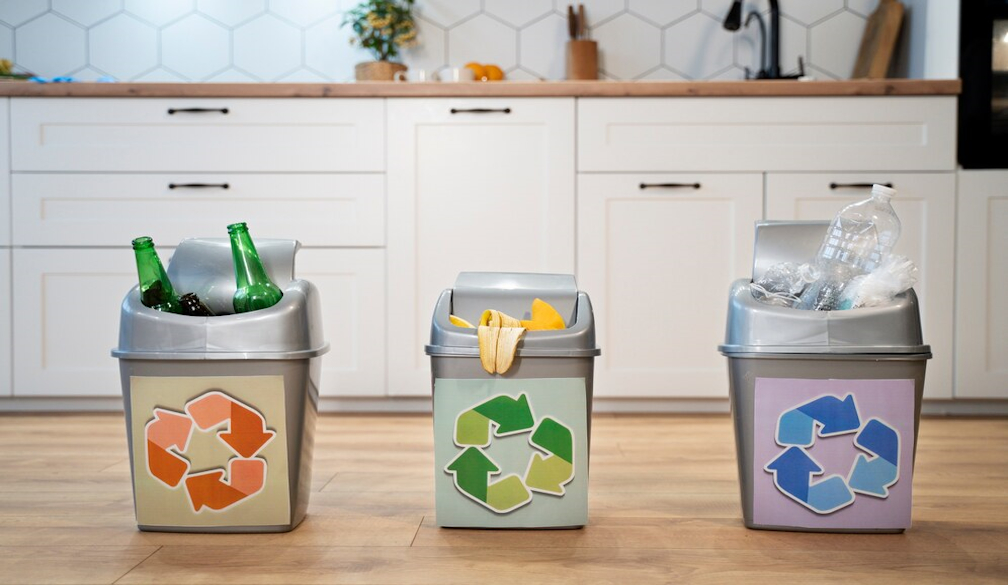The Role of Recycling in Commercial Rubbish Removal

Recycling plays a crucial role in effective waste management, particularly in the context of commercial rubbish removal. Businesses generate substantial amounts of waste, much of which can be recycled. Integrating recycling practices into commercial rubbish removal not only benefits the environment but also enhances corporate responsibility and can lead to cost savings. Here’s a closer look at the importance of recycling in commercial rubbish removal and how businesses can implement effective recycling strategies.
Environmental Benefits
Recycling significantly reduces the environmental impact of commercial waste. By diverting waste from landfills, businesses can minimise pollution, conserve natural resources, and reduce greenhouse gas emissions.
Reducing Landfill Use:
Landfills are rapidly reaching capacity, and waste decomposition in landfills produces harmful gases such as methane. Recycling reduces the volume of waste sent to landfills, alleviating pressure on these sites and reducing the production of harmful emissions.
Conserving Resources:
Recycling conserves natural resources by repurposing materials like paper, plastics, metals, and glass. For example, recycling paper reduces the need for deforestation, while recycling metals conserves ores and minerals.
Energy Savings:
Manufacturing products from recycled materials often requires less energy compared to producing them from raw materials. For instance, recycling aluminum saves up to 95% of the energy needed to produce new aluminum from bauxite ore.
Economic Advantages
Incorporating recycling into commercial rubbish removal can also offer economic benefits for businesses.
- Cost Savings: Recycling can lead to cost savings in waste disposal fees, as recycled materials are often cheaper to process than regular waste. Additionally, some recycling programs offer financial incentives for businesses that actively participate in recycling efforts.
- Revenue Generation: Certain recyclable materials, such as metals and electronics, can be sold to recycling firms, generating additional revenue for businesses.
- Compliance and Avoiding Penalties: Many regions have regulations mandating recycling for businesses. Complying with these regulations can help businesses avoid fines and penalties, while demonstrating environmental responsibility to stakeholders.
Enhancing Corporate Responsibility
Adopting recycling practices in commercial rubbish removal reflects a business's commitment to sustainability and corporate social responsibility (CSR).
- Improving Brand Image: Consumers and clients increasingly prefer to engage with businesses that prioritise environmental sustainability. Demonstrating a commitment to recycling can enhance a company’s reputation and attract eco-conscious customers.
- Employee Morale: Employees tend to feel more positive about working for companies that take their environmental responsibilities seriously. A robust recycling program can improve employee morale and foster a culture of sustainability within the organisation.
- Community Impact: By recycling, businesses can positively impact their local communities by reducing pollution and conserving resources. This can strengthen community relations and enhance the business’s standing in the local area.
Implementing Effective Recycling Strategies
To maximise the benefits of recycling in commercial rubbish removal, businesses should implement effective recycling strategies.
- Conduct a Waste Audit: A waste audit helps identify the types and quantities of waste a business generates. This information is crucial for developing a tailored recycling program that addresses specific waste streams.
- Employee Training: Educating employees about the importance of recycling and proper sorting techniques is vital for the success of a recycling program. Regular training sessions and clear signage can reinforce good recycling habits.
- Partnerships with Recycling Services: Partnering with a reputable commercial rubbish removal service that offers recycling can streamline the process. These services can provide bins, collect recyclables, and ensure that materials are processed correctly.
- Monitor and Adjust: Continuously monitoring the recycling program’s effectiveness and making necessary adjustments can improve its efficiency. Regularly reviewing recycling rates and identifying areas for improvement ensures the program remains effective.
Conclusion
Recycling is an integral component of commercial rubbish removal, offering significant environmental, economic, and social benefits. By implementing effective recycling strategies, businesses can reduce their environmental footprint, achieve cost savings, and enhance their corporate responsibility. The commitment to recycling not only reflects positively on the business but also contributes to a more sustainable future for all.



